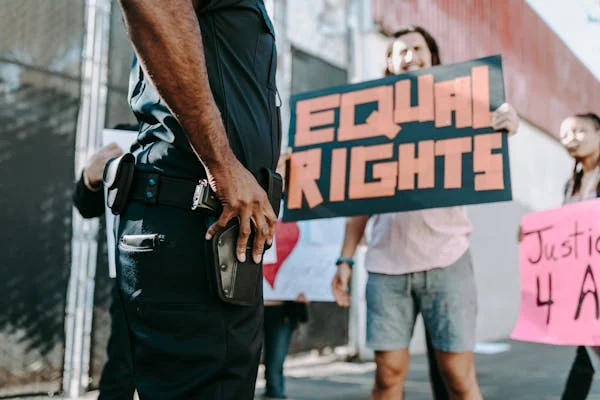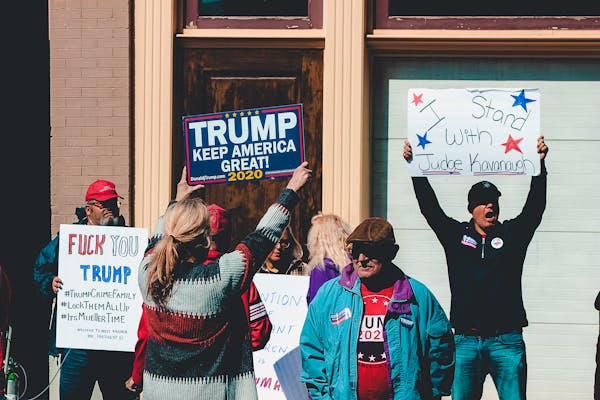In the world of words, some questions echo, louder than others, across timelines and lands. “Who Shot Trump?” might seem simple, but it’s layered in a way that draws intrigue, debates, and the ceaseless curiosity of people everywhere. In the world of news and information, your website becomes a guide, shedding light, clearing paths, and filling the gaps between what is known and what is yet to be told.
This journey is more than just piecing together Trump’s biography; it’s about diving deep, walking through the corridors of controversy, legacy, and what his life means to millions.

Table of Contents
| Section | Description |
| The Allure of Unique Stories | Setting the tone, understanding the fascination with powerful figures, and the metaphor of “Who Shot Trump?” |
| The Allure of Unique Stories | Why the world is drawn to stories of power, struggle, and legacy, especially when they are told uniquely |
| Donald J. Trump: Early Life | An exploration of Trump’s roots, family background, and the early influences that shaped his ambition |
| From Businessman to Celebrity | Trump’s journey through the real estate world, his fame as a businessman, and his rise in the public eye |
| Trump’s Entry into Politics | Analyzing the surprising moment when Trump stepped into the political arena and shook the foundations of American politics |
| The Symbolism of “Who Shot Trump?” | Understanding the phrase as a metaphor for criticism, opposition, and political conflict that surrounds powerful figures |
| Myth vs. Reality | Deconstructing myths and conspiracy theories, and exploring why such narratives emerge around Trump |
| Poetic Expressions in Politics | How poetic language enhances the understanding of political legacies and brings depth to historical figures |
| The Power of a Legacy | Examining the lasting impact of Trump’s presidency and how it reshaped political conversations and public expectations |
| FAQs on Trump’s Impact | Common questions about Trump’s influence, the “Who Shot Trump?” metaphor, and its implications |

The Call for Unique Words in a Sea of Noise
With every article, the world shifts a little, perspectives sharpen, and knowledge grows. In the digital age, information flows freely, but authenticity stands firm, alone, like a tree in the middle of a sprawling field. Why do we crave uniqueness in what we read? Because the heart and soul of any good article lie in its originality.
To be unique isn’t just to be different—it’s to be essential, to bring something valuable that others have missed or skimmed over. Your website is the garden of these ideas, where fresh perspectives sprout, bloom, and offer readers a slice of truth.
Donald J. Trump: A Life Woven in Contrasts
Donald J. Trump, a name that needs no introduction, yet each layer of his life reveals something new, sometimes perplexing, sometimes fascinating. Born in 1946 in the vibrant city of Queens, New York, Trump’s journey began in a world of business, politics, and ambition. The son of a real estate developer, young Donald learned quickly how to navigate the tides of opportunity and risk.
His early life wasn’t that of a politician but of a businessman with a knack for taking the unconventional path. From real estate deals to hotel chains and golf courses, he built an empire that bore his name in golden letters. And yet, in 2015, he took a step that few predicted—Trump announced his candidacy for President of the United States. The world watched in wonder, curiosity, and sometimes disbelief.
As President, Trump’s actions and decisions carved a legacy marked by both supporters and critics. He became a figure both celebrated and challenged, embodying the paradoxes of modern America. To many, he stood as a symbol of resilience, power, and patriotism. To others, he represented division. Each step of his life, each chapter, tells a story of ambition, success, conflict, and change.
“Who Shot Trump?” – The Echo of a Question
In a literal sense, there is no shooter, no act that ended Trump’s life or cut his journey short. But in the metaphorical, “Who shot Trump?” rings differently. It becomes a question of politics, opposition, and the forces that rise against powerful figures in society. When someone of Trump’s stature walks into the spotlight, the shadows follow. Those shadows are made of words, actions, controversies, and the ceaseless eyes of the public.
The question may also reflect the countless attempts to undermine him, the political bullets fired through policies, debates, and media narratives. Some say it’s the cost of fame, others believe it’s the inevitable fate of anyone who dares to stand at the top.
Political myths and conspiracy theories sprout easily in such fertile ground, each adding to the legend of Donald Trump. Who shot Trump? Perhaps it’s not a person, but the constant clash of ideas, ideals, and the unyielding waves of public opinion.
The Power of a Poetic Voice in the Midst of Controversy
To write of Trump and the world surrounding him in a purely factual tone would be to miss the heart of the story. Here lies the beauty of poetic language—a bridge between fact and feeling, a way to see beyond what is known. In the words we choose, the tone we take, we offer readers not just information but an experience, a journey.
For when we speak in poetry, we capture the silences, the pauses, the deep breaths between each moment. We invite the reader to feel and to reflect, to wonder not only what happened but why it resonates so deeply.
FAQs About Trump’s Legacy and Public Perception
- Why is Trump’s life so widely discussed?
Donald Trump has lived a life filled with decisions and actions that have had a global impact, making him a figure of both admiration and critique. - What is the significance of the phrase “Who Shot Trump?”
It’s more of a metaphorical question, symbolizing the opposition, criticism, and political battles faced by Trump throughout his career. - How has Trump’s legacy influenced politics in America?
His presidency introduced a new style of leadership, often direct and controversial, that reshaped both political strategies and public discourse. - Why do people use poetic language when discussing influential figures like Trump?
Poetic language captures the emotion and depth behind events, making the story more engaging and reflective for readers.
Conclusion
To write about Trump, or any prominent figure, is to walk a line between admiration and analysis. It’s to uncover truths, reveal opinions, and allow readers to form their own judgments. “Who shot Trump?” may be a question that has no clear answer but carries a powerful echo in the world of politics and public life. And so, we write, we question, and we wonder—hoping that in each unique article, we come closer to understanding the figures who shape our world.
